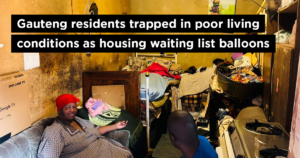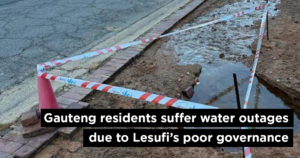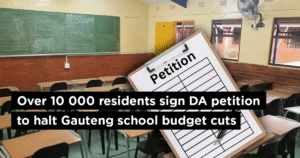Note to editors: Please find attached soundbite by Sergio Isa dos Santos MPL
The recent conclusion of the Gauteng Basic Education Laws Amendment (BELA) Bill hearings has revealed that parents in Gauteng are opposed to the proposed legislation.
Throughout the hearings, it was clear that most parents were very concerned about the implications of the BELA Bill. Among their concerns is the perceived threat to their parental rights, particularly the freedom to choose homeschooling as an educational option for their children. In addition, there were concerns about the bill’s intention to diminish the powers of School Governing Bodies (SGBs) while giving excessive powers to the MEC and the Head of the Department.
This public sentiment echoes the Democratic Alliance’s (DA) submission to the parliamentary portfolio committee on basic education that the bill is regressive as it aims to disempower SGBs from determining school admission and language policies and centralise this responsibility to Heads of Provincial Departments (HODs). It also resonates with our evaluation that the BELA Bill, known in Gauteng as the “Lesufi clauses,” does not address critical issues such as the effective regulation of blended learning and online learning, the regulation of home education, and the allocation of the necessary resources to unfunded, mandatory Grade R education.
The overwhelming rejection from concerned parents emphasises the need for a thorough re-evaluation of the proposed legislation, particularly towards homeschooling regulations and the stripping of SGBs’ power to determine their language and admission policies.
The DA demands that the Department of Basic Education (DBE) heed the concerns of these parents and that this flawed legislation not be imposed on them. Instead, a better alternative that fosters parental involvement while upholding the integrity of educational institutions should be pursued.
The DA proposes the following, which is for the DBE to focus on:
• Reducing high learner dropout rates in this sector.
• Fixing dilapidated school infrastructure, such as eradicating asbestos infrastructure in schools.
• Poor quality teaching is attributed to the strongholds of teachers’ unions.
• Overcrowded classrooms due to an insufficient number of schools.









